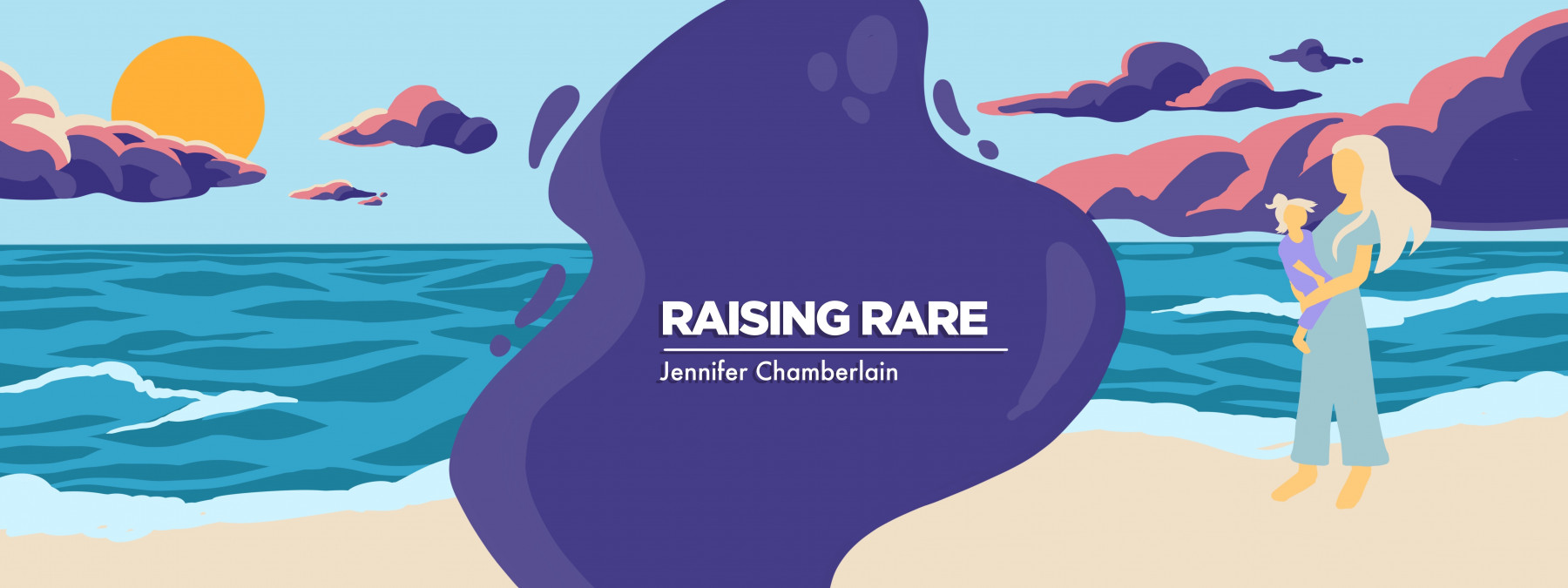How I learned to become a patient care advocate for my daughter
A difficult period in this columnist's life taught her a valuable lesson
Written by |

For days after having an anatomy scan, I spent most of the time lying on the couch, crying. My eyes were so swollen I had to ice them to keep them open.
We were living every parent’s worst nightmare: Our unborn baby had ultrasound abnormalities. The fear of the unknown consumed me. While I’d struggled with anxiety, dealing with a high-risk pregnancy took it to another level.
Days after receiving the news, my friend persuaded me to attend a Fourth of July party. I badly wanted to feel normal and act like none of this was happening, but I couldn’t escape my ruminating thoughts. While everyone celebrated the holiday, I hid in a room having a panic attack.
I knew I needed help. I started seeing a reproductive psychiatrist, who consulted with my obstetrician and perinatologist. She prescribed me an antidepressant, explaining that the stress I was under could be more harmful than the potential side effects of the medication.
While my husband and I had been confirmed only as cystic fibrosis (CF) carriers, my instincts were strong; I knew my unborn baby had the disease. And one of the potential side effects of the medication could affect our unborn baby’s lungs. The thought of taking an antidepressant terrified me. I had to decide whether to take it to help myself while potentially putting my baby at risk for lung complications.
I needed time and help to process my emotions. I had several sessions with my reproductive psychiatrist and a maternal health counselor to help me make a decision. But I didn’t feel truly heard, which heightened my anxiety.
A lie and a lesson
So I lied to everyone — my doctors, my parents, and even my husband. I went as far as picking up the prescription and setting it on my nightstand so that everyone would think I was taking it.
Around that time, I began to come out of the shock on my own. I started learning more about cystic fibrosis and medical advancements. My anxiety and depression waned. Everyone thought the medication was working. I felt like the biggest sham.
Of course, I don’t recommend that anyone lie, especially to their medical team. But I think my story affirms that a patient’s voice needs to be heard, whether in relation to a physical or mental health issue. I wasn’t vocal enough about my concerns and felt ashamed for questioning the opinions of medical professionals. What I failed to recognize was that patients are most affected by treatment decisions. Doctors make recommendations, but patients must live with the decisions.
Today, I’m patient advocate for my 5-year-old daughter, Claire, and will be until she can articulate her needs on her own. In that role, I’m often put in a position of deferring to medical professionals. My own experience provided me a new perspective on how to vocalize concerns and advocate for exploring all treatment options, whether for myself or for Claire.
I now ask questions and try not to leave the clinic without answers. This choice can be uncomfortable at times, but I know how important it is for Claire to understand that her voice should always heard.
Note: Cystic Fibrosis News Today is strictly a news and information website about the disease. It does not provide medical advice, diagnosis, or treatment. This content is not intended to be a substitute for professional medical advice, diagnosis, or treatment. Always seek the advice of your physician or other qualified health provider with any questions you may have regarding a medical condition. Never disregard professional medical advice or delay in seeking it because of something you have read on this website. The opinions expressed in this column are not those of Cystic Fibrosis News Today or its parent company, Bionews, and are intended to spark discussion about issues pertaining to cystic fibrosis.








Leave a comment
Fill in the required fields to post. Your email address will not be published.